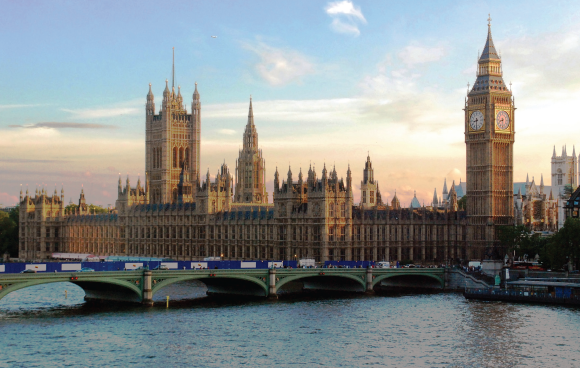The new UK government has launched a £7.3bn (€8.63bn) National Wealth Fund with which to “unlock private investment” in UK infrastructure, but industry sources have raised concerns that simultaneous plans to reform key advisory bodies could slow down progress when urgently needed.
This week, chancellor Rachel Reeves announced that the existing UK Infrastructure Bank (UKIB) and the British Business Bank would be “aligned under” a new National Wealth Fund that would “bring together key institutions and a compelling proposition for investors”, mobilising “billions more in private investment”.
Nigel Peaple, director of policy and advocacy at the PLSA, said the UK pension fund trade body welcomed the “government acting decisively to set out plans for a National Wealth Fund”, with the PLSA having previously recommended it take steps “to improve the pipeline of investible assets available to pension funds”.
Meanwhile, Jon Phillips, CEO of the Global Infrastructure Investor Association (GIIA), which represents some of the world’s largest institutional investors, said: “The National Wealth Fund intervention will be largely welcomed as long as it is additive to the current landscape, and is focused on crowding in more private investment.”
According to GIIA’s most recent survey of its members, by the second quarter of this year the attraction of the UK for infrastructure investors globally had fallen markedly over the past 12 months.
“Investor sentiment towards the UK has fallen significantly in recent years and Labour’s focus on making the UK a more attractive investment destination is very welcome,” Phillips said. “Streamlining the number of organisations tasked with allocating public funds is sensible in terms of reducing potential confusion in the market. The UKIB has built a good reputation in fostering relationships with the private sector and is well placed to take on this additional responsibility.”
Speaking under anonymity, a consultant involved in advising public and private organisations in infrastructure, said the National Wealth Fund was the latest example in the Labour government “being very clear” – before and since the election “that they want to embrace private capital into the infrastructure and that’s all be recieved very positively”.
But despite admitting that it was “refreshing” to see a UK government “intent on actually making that happen”, he was concerned that attempts to reform other bodies could ultimately slow any progress.
The infrastructure investment industry is now seeking clarity on how the new wealth fund will work alongside the government’s plans to merge the National Infrastructure Commission (NIC) and the Infrastructure & Ports Authority (IPA) into a new body called the National Infrastructure and Service Transformation Authority (NISTA). “How all things all interact with each other is not is not clear yet,” the consultant said.
His biggest concern was that a reform and merger of NIC and IPA, which both advise the UK government, could lead to “a hiatus for six months or 12 months, where everyone gets absorbed in moving the deck chairs around and we don’t actually get the progress that they say they want to get”.
He added: “Whether and I see NIC and IPA as one organisation or two is neither here nor there. The real issue in terms of getting stuff done on a consistent [and] effective basis in the UK is [addressing the current] siloing of responsibilities across a whole range of central government departments and their agencies.”
To be effective, NISTA needs to be able to act with the authority of the Treasury and the Cabinet Office of the government, he suggested.
Georg Inderst, independent consultant to infrastructure investors and organisations, said: “At first look, the proposed institutional set-up of the National Wealth Fund, and the ‘alignment’ of the UKIB and the British Business Bank under that, does not feel very convincing.
“A chronic problem in the UK have been gaps and overlaps between government departments and other public investment institutions, with a lack of clarity on responsibilities and accountability. It will be an important challenge for the new government to bring a clear and consistent line into public investment plans and institutions for the long term.”
Since the global financial crisis of 2008, “UK governments have developed a history of making grand announcements of new institutions, plans and financing schemes for infrastructure and green investments, and many subsequent changes or reversals to them”, Inderst said, citing Infrastructure UK, National Infrastructure (Delivery) Plan, National Infrastructure and Construction Pipeline, PF2 and Green Investment Bank, among others.
“For asset owners such as pension funds and insurance companies, the co-operation and co-investment with such strategic investment funds or national development banks can be useful for a number of reasons,” Inderst said. “[But] potential risks can be in an unclear or complex institutional set-up, in slow decision-making or excessive bureacracy, in changing government directions and rules, and in diverging time frames or risk appetites between all the players involved.
“Of course, institutional investors will take a close look at both their public partner and the specific assets/projects, and how they would fit into their portfolio strategies.”
To read the latest IPE Real Assets magazine click here.

